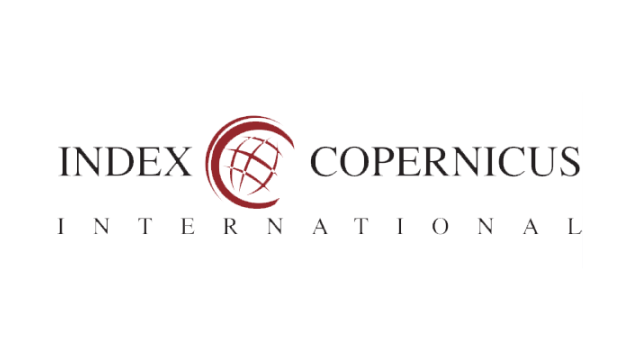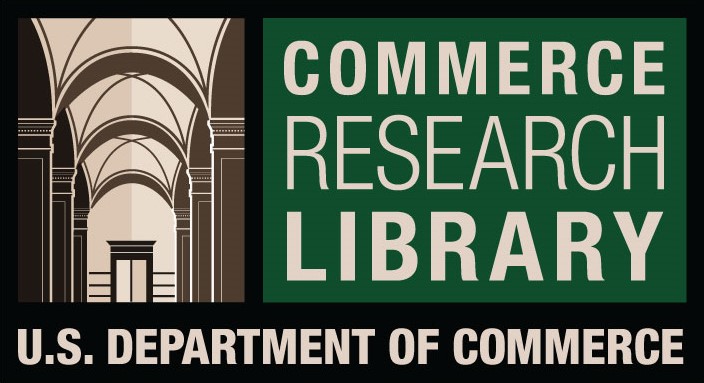Pedagogical Content Knowledge on Early Mathematics Among Malaysia’s Preschool Teachers: A Literature Review
DOI:
https://doi.org/10.61841/ykqtd956Keywords:
Early Childhood Education,, Preschool, Pedagogical Content Knowledge (PCK),, National Preschool Standard Curriculum (NPSC),, Early Mathematics.Abstract
Early childhood education in Malaysia refers to the programmes provided for children from birth to the age of eight. The programmes include related activities from kindergarten, preschool, to primary Year Two. The National Preschool Standard Curriculum (NPSC) focuses on a student-centred learning curriculum. Such knowledge is necessary to enable preschool teachers to make teaching and learning a fun and meaningful experience for preschoolers in Malaysia. Improvement in the quality of teaching and learning (T&L) of preschool teachers is closely linked to the teachers’ PCK, which has the potential to enhance their teaching profession. The purpose of this paper is to explain the concepts and requirements of early mathematical PCK in a preschool education. The qualitative study is based on analysis of documents, journals, and books related to the discussions of PPK. The library methodology involves inductively and deductively analysing previous studies using Shulman’s model to identify early mathematical concepts and interests. The findings suggest that preschool teachers’ mastery of PCK can enhance their skills and understanding of early mathematics. The studies have also found that students who achieved excellent results at the primary or secondary level had basic mathematical learning from the preschool level. Such a trend needs to be addressed by the MoE and educators who are aware of the importance of early mathematics from preschool. This study is expected to shed light on the importance of improving the quality of preschool teachers’ delivery of early mathematics teaching.
Downloads
References
[1] Abdul Jalil, O., Normarini, N., Ghazali, D., & Saedah, S. (2011). Cabaran guru program linus dalam pengajaran dan pembelajaran bahasa. Issues in Education, 34, 37-51.
[2] Abdul Razak, I., & Nor Asmah, S. (2010). Pendekatan pengajaran yang digunakan oleh guru sekolah menengah di daerah Johor Bahru dalam pengajaran dan pembelajaran matematik. Johor: Universiti Teknologi Malaysia.
[3] Abell, S. K. (2008). Twenty Years Later: Does pedagogical content knowledge remain a useful idea? International Journal of Science Education, 30(10), 1405–1416.
[4] Ball, D. (2011). What do math teachers need to know? Applied Research in Education at Israel Academy of Sciences and Humanities, Jerusalem, Israel. www-personal.umich.edu/-dball.
[5] Ball, D. L., Thames, M. H., & Phelps, G. (2008). Content Knowledge for Teaching. Journal of Teacher Education, 59,389-407.
[6] Ball, D. L. (1988). Knowledge and Reasoning in Mathematical Pedagogy: Examining What Prospective Teachers Bring to Teacher Education. PhD thesis, Lansing: Michigan State University.
[7] Berry, A., Loughran, J., & van Driel, J. H. (2008). Revisiting the roots of pedagogical content knowledge. International Journal of Science Education, 30(10), 1271–1279.
[8] Boyd, D., Grossman, P., Hammerness, K., Lankford, H., Loeb, S., Ronfeldt, M., & Wyckoff, J. (2010). Recruiting Effective Math Teachers: How Do Math Immersion Teachers Compare? Evidence from New York City. National Bureau of Economic Research Working Paper Series, No. 16017.
[9] Brenneman, K. Stevenson-Boyd, J., & Fred, E. (2009). Math and science in preschool: Policies and practice. Preschool Police Brief, 19, 1-11.
[10] Charlesworth, R., & Lind, K. K. (2007). Math & Science for Young Children. New York: Thomson Delmar Learning.
[11] Clements, D. H., & Sarama, J. (2008). Experimental evaluation of the effects of a research-based preschool mathematics curriculum. American Educational Research Journal, 45, 443-494.
[12] Copley, J. V. (2010). The Young Child and Mathematics (2nd ed.). Washington DC: National Association for the Education of Young Children.
[13] Fennema, E., & Franke, L. M. (1992). Teachers’ Knowledge and Its Impact. In D. A. Grouws (Ed.), Handbook of research on Mathematics Teaching and Learning. New York: Macmillan, pp. 147-164.
[14] Ginsburg, H. P., Lee, J. S., & Boyd, J. S. (2008). Mathematics education for young children: What it is and how to promote it. Society for Research in Child Development Social Policy Report, 22, 3-24.
[15] Grossman, P. L., & McDonald, M. (2008). Back to the future: Directions for research in teaching and teacher education. American Educational Research Journal, 45(1), 184–205.
[16] Hill, H. C., Schilling, S. G., & Ball, D. L. (2004). Developing measures of teachers’ mathematical knowledge for teaching. Elementary School Journal, 105(1), 11-30.
[17] Hill, H. C., Rowan, B., & Ball, D. L. (2005). Effects of teachers’ mathematical knowledge for teaching on student achievement. American Educational Research Journal, 42, 371-40.
[18] Hussin, S. Quek, A. H, & Loh, S. C. (2008). Policy into practice: the challenge for special education in Malaysia. International Conference on Experiential Learning, pp. 1-3.
[19] J. Chee, M. N. Mariani, A. J. Othman, & M .R. Nor Mashitah. (2017). Exploring the issue of content, pedagogical and technological knowledge among preschool teachers. International Journal of Advanced and Applied Sciences, 4(3), 130-136.
[20] J. Chee, M. N. Mariani, A. J. Othman, & M .R. Nor Mashitah. (2017). Understanding of content knowledge, pedagogical knowledge among preschool teacher and application developmentally appropriate practices in teaching. International Journal of Advanced and Applied Sciences, 4(3), 148-153.
[21] Jang, Y. J. (2013). Perspectives on Mathematics Education for Young Children. PhD thesis, Urbana: University of Illinois.
[22] Koehler, M. J., & Mishra, P. (2005). What happens when teachers design educational technology? The development of technological pedagogical content knowledge. Journal of Educational Computing Research, 32(2),131–152.
[23] Lee, J. (2010). Exploring kindergarten teachers’ pedagogical content knowledge of mathematics. International Journal of Early Childhood, 42, 27-41.
[24] Ma, L. (1999). Knowing and Teaching Elementary Mathematics. New Jersey: Erlbaum.
[25] McCray, J. S., & Chen, Jie-Qi. (2012). Pedagogical content knowledge for preschool mathematics: Construct validity of a new teacher interview. Journal of Research in Childhood Education, 26, 291–307.
[26] Mccray, J. S. (2008). Pedagogical Content Knowledge for Preschool Mathematics: Relationships to Teaching Practices and Child Outcomes. PhD thesis, Illinois: Loyola University Chicago.
[27] Minsitry of Education Malaysia. (2016). National Standard Preschool Curriculum. Department of Curriculum Developing.
[28] Minsitry of Education Malaysia. (2017). Curriculum and Assessment Standard Document. Department of Curriculum Developing.
[29] Mueller, V., & Hurtig, R. (2010). Technology enhanced shared reading with deaf and hard-of-hearing children: The role of a fluent signing narrator. Journal of Deaf Studies and Deaf Education,15(1),72–101.
[30] National Council of Teacher of Mathematics. (2000). Executive Summary Principles and Standard for School Mathematics.
[31] National Research Council. (2009). Mathematics learning in early childhood: Paths toward excellence and equity. Washington DC: National Academies Press.
[32] Niess, M. L. (2011). Investigating TPACK: Knowledge growth in teaching with technology. Journal of Education Computing Research, 44(3), 299-317.
[33] Norasliza, H., & Zaleha, I. (2008). Pengetahuan pedagogi kandungan guru pelatih matematik sekolah menengah. Seminar Kebangsaan Pendidikan Sains dan Matematik, pp. 11-12.
[34] Norhaizian, S., & Sharifah Norul Akmar, S. Z. (2011). Numeracy level of preschool. International Conference on Future Education in Global Challenges, pp. 310-322.
[35] Norly, J. (2015). Pemahaman guru pendidikan awal kanak-kanak terhadap konsep awal matematik. Jurnal Pendidikan Awal Kanak-kanak Kebangsaan, 4, 64-80.
[36] Park, S. H., & Oliver, J. S. (2008). Revisiting the conceptualization of pedagogical content knowledge (PCK): PCK as a conceptual tool to understand teachers as professionals. Research Science Education, 38, 261-284.
[37] Rao, N., Sun, J., Zhou, J. and Zhang, L. (2012). Early achievement in rural china: The role of preschool experience. Early Childhood Research Quarterly, 27(1), 66-76.
[38] Rohaan, E. L, Taconis, R., & Jochems, W.M.G. (2011). Exploring the underlying components of primary school teachers’ pedagogical content knowledge for technology education. Eurasia Journal of Mathematics, Science and Technology Education, 7(4), 293-304.
[39] Rohaty, M. M. (2012). Preschool children's early mathematics achievement based on gender and ethnicity. Asian Social Science, 8(16), 24-29.
[40] Schmidt, H. M. Burts, D. C. Durham, R. S. Charlesworth, R. & Hart, C. H. (2007). Impact of the developmental appropriateness of teacher guidance strategies on kindergarten children’s interpersonal relations. Journal of Research in Childhood Education, 21(3), 290-301.
[41] Shulman, L. S. (1986). Those who understand: Knowledge growth in teaching. Educational Research, 15(2), 4- 14.
[42] Shulman, L. S. (1987). Knowledge and teaching: Foundations of the new reform. Harvard Educational Review, 57(1), 1-23
[43] Siti Mistima, M., & Effandi, Z. (2014). Analyzing pedagogical content knowledge of algebra using confirmatory factor analysis. Indian Journal of Science and Technology,7(3), 249-253.
[44] Smith, S. S. (2009). Early childhood mathematics. Boston: Pearson.
[45] Tengku Zawawi, T. Z. (2009). Isu pengajaran matematik: Kepercayaan dan pengetahuan pedagogikal kandungan guru. Jurnal Pendidikan Malaysia, 34(1), 131-153.
[46] Thames, M. H., & Ball, D. L. (2010). What math knowledge does teaching require? Teaching Children Mathematics, 17(4), 220-229.
[47] van Driel, J. H., Verloop, N., & de Vos, W. (1998). Developing science teachers' pedagogical content knowledge. Journal of Research in Science Teaching, 35(6), 673-695.
[48] Zamri, M., & Magdeline, A. N. (2012). Penguasaan pengetahuan pedagogi kandungan guru bahasa iban. GEMA Online™ Journal of Language Studies, 12(2), 593-608.
[49] Zhang, Y. (2015). Pedagogical Content Knowledge in Early Mathematics: What Teacher Know and How It Associates with Teaching and Learning. PhD thesis, Loyola University Chicago.
Downloads
Published
Issue
Section
License

This work is licensed under a Creative Commons Attribution 4.0 International License.
You are free to:
- Share — copy and redistribute the material in any medium or format for any purpose, even commercially.
- Adapt — remix, transform, and build upon the material for any purpose, even commercially.
- The licensor cannot revoke these freedoms as long as you follow the license terms.
Under the following terms:
- Attribution — You must give appropriate credit , provide a link to the license, and indicate if changes were made . You may do so in any reasonable manner, but not in any way that suggests the licensor endorses you or your use.
- No additional restrictions — You may not apply legal terms or technological measures that legally restrict others from doing anything the license permits.
Notices:
You do not have to comply with the license for elements of the material in the public domain or where your use is permitted by an applicable exception or limitation .
No warranties are given. The license may not give you all of the permissions necessary for your intended use. For example, other rights such as publicity, privacy, or moral rights may limit how you use the material.









